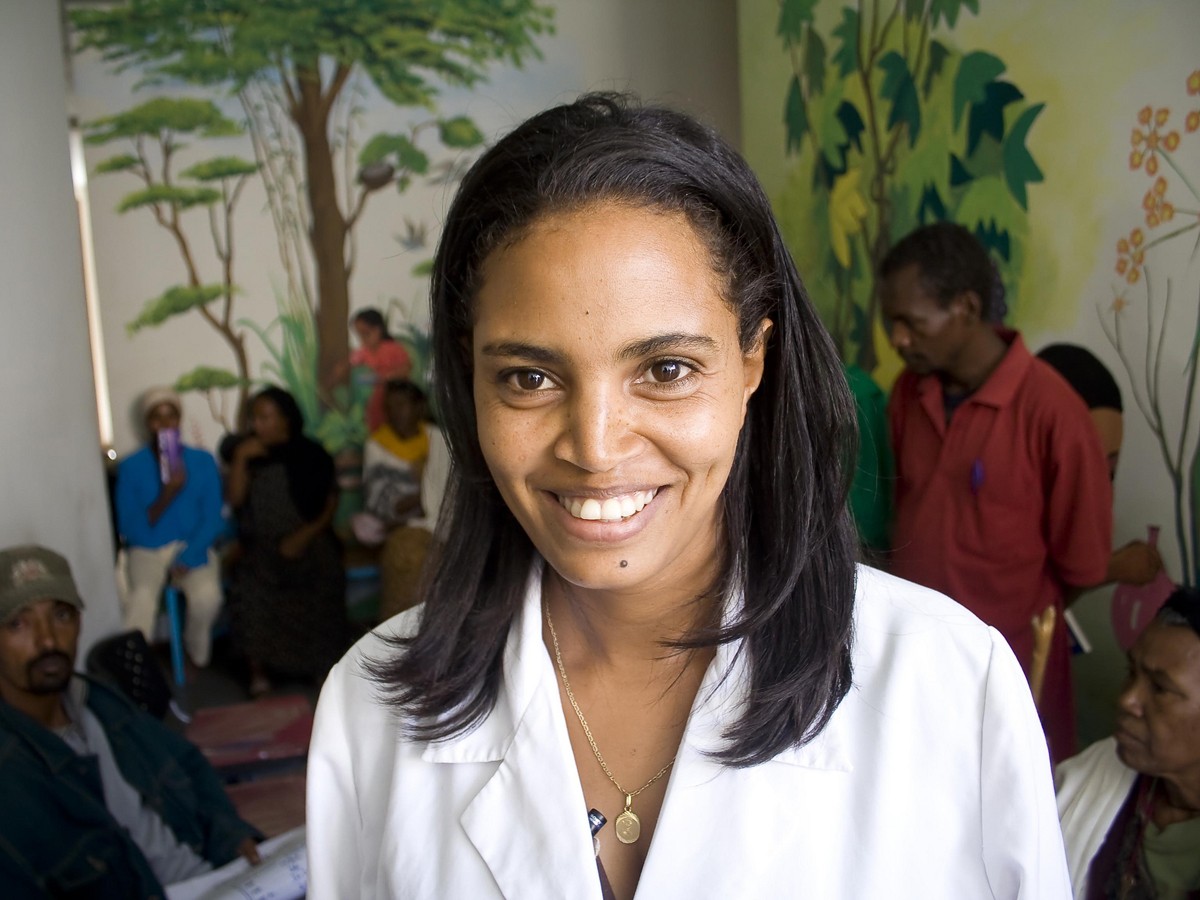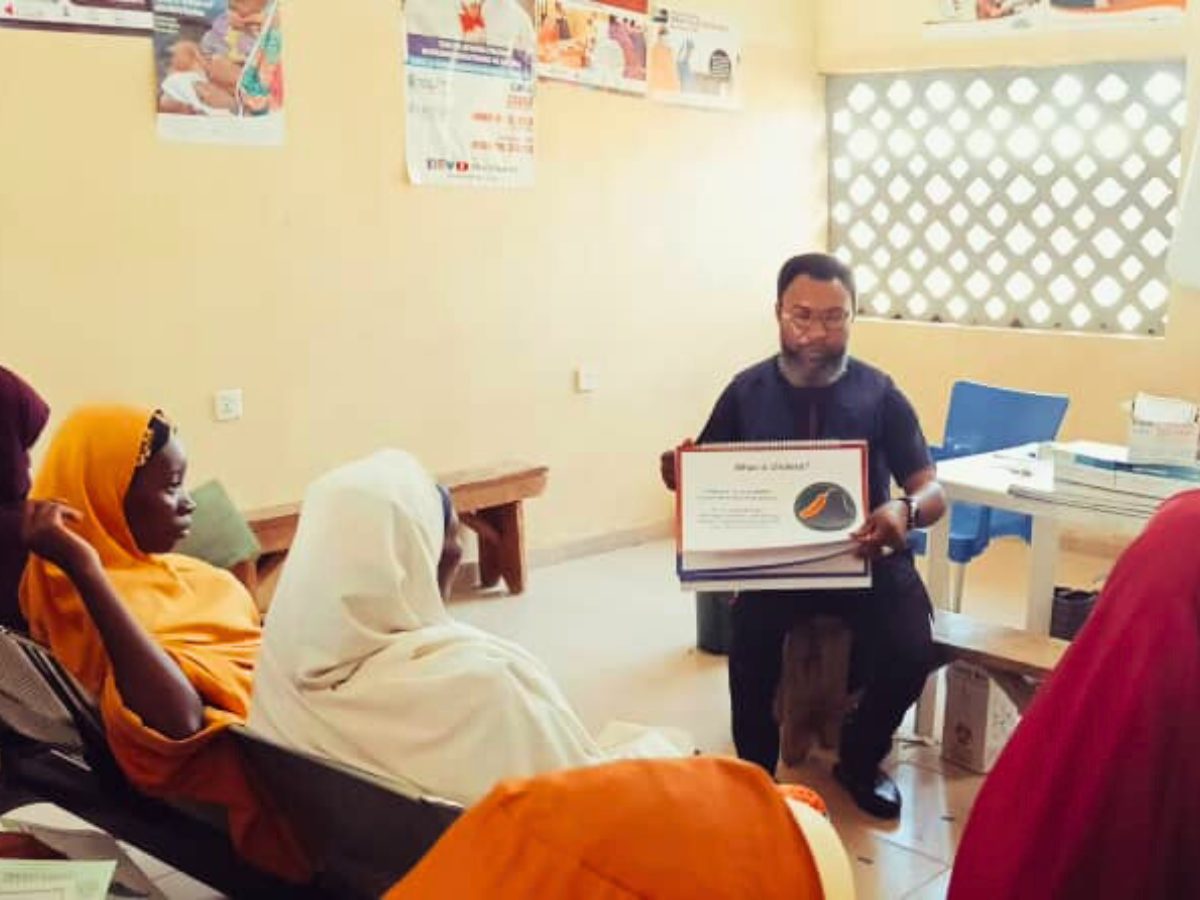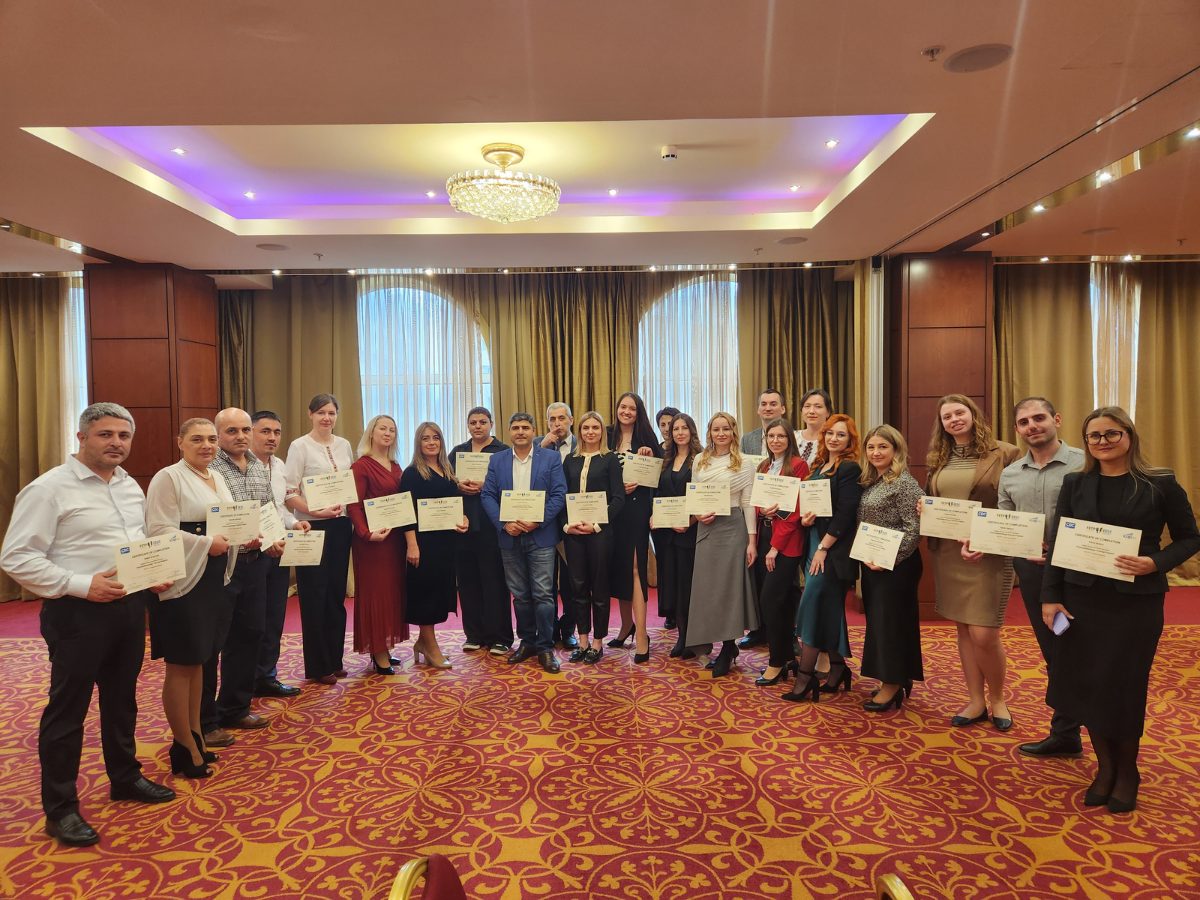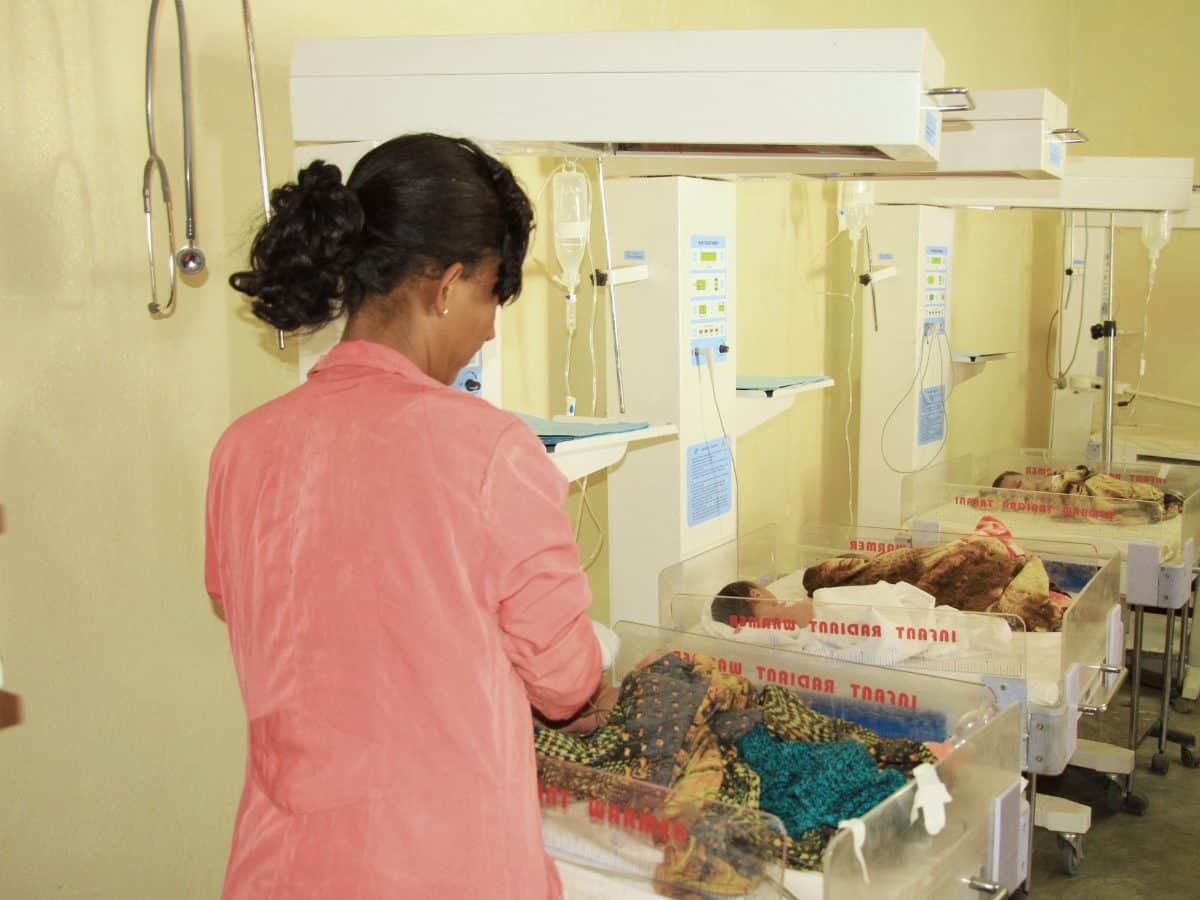Building on more than a decade of successful partnership with Ethiopia, ICAP has received a new, five-year award from the U.S. President’s Emergency Plan for AIDS Relief (PEPFAR) through the Centers for Disease Control and Prevention (CDC) to support the Federal Ministry of Health and regional health bureaus in four regions of the country, and to strengthen regional health bureaus and provide support to health facilities in four additional emerging regions.
“The goal for the next five years is to take existing achievements by the Federal Ministry of Health in Ethiopia to the next level by reinforcing the health system’s capacity to reach the UNAIDS 90-90-90 goals and achieve HIV epidemic control,” said Zenebe Melaku, MD, ICAP country director in Ethiopia. “This will involve tailored technical assistance and support, a focus on priority towns and populations, and targeted approaches to address disparities in the HIV response.”
At the ministry of health level and in the four regions that have already transitioned to full regional health bureau support of health programs—Amhara, Addis Ababa, Oromia, and the Southern Nations, Nationalities, and Peoples’ Region—ICAP will provide technical assistance for strategic planning, enhanced data quality and data use for program design and implementation, and training, management, and retention of health care providers.
In the four emerging regions—Afar, Benishangul-Gumuz, Gambella, and Somali—ICAP will strengthen PEPFAR-supported health facilities through mentorship, quality improvement efforts, and performance review meetings.
Since 2005, ICAP has worked with the Federal Ministry of Health to support all 11 of the country’s regional health bureaus—including 13 regional labs, 723 sites, and 575 site labs. From 2005-2017, through ICAP’s partnership, 10.2 million people were tested for HIV and more than 347,000 were initiated on antiretroviral therapy. Additionally, over 41,000 men received voluntary medical male circumcision, an effective HIV prevention method. These activities were supported by the more than 63,000 health care workers trained during this time period.
The success of ICAP’s partnerships in Ethiopia can be seen in the findings released in December 2018 from the EPHIA (Ethiopia Population-based HIV Impact Assessment) survey, funded by PEPFAR and conducted by ICAP in collaboration with Federal Ministry of Health and partnership with CDC. This national survey showed that 72 percent of HIV-positive people aged 15–64 in urban areas were aware of their HIV infection, 99 percent of those who knew that they were HIV-positive reported taking HIV treatment, and 90 percent of the latter had suppressed viral load—an indication that they were taking their treatment regularly. EPHIA is part of a groundbreaking, 14-country project to measure the status of the HIV epidemic and progress toward the UNAIDS 90-90-90 targets.
“ICAP, with its deep experience, technical expertise, and longstanding partnerships with the Ethiopian government at all levels, is eager to continue to build on the country’s achievements in its response to the HIV epidemic,” said Wafaa El-Sadr, MD, MPH, MPA, ICAP’s global director. “We look forward to continued collaboration with the government of Ethiopia and with other partners in-country.”
A global health leader since 2003, ICAP was founded at Columbia University with one overarching goal: to improve the health of families and communities. Together with its partners—ministries of health, large multilaterals, health care providers, and patients—ICAP strives for a world where health is available to all. To date, ICAP has addressed major public health challenges and the needs of local health systems through 6,000 sites across 30 countries. For more information about ICAP, visit: icap.columbia.edu








